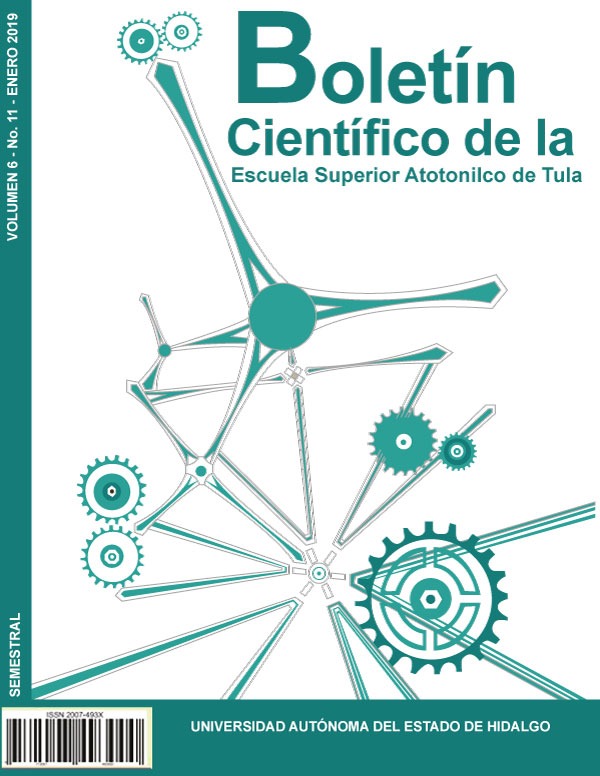Alexithymia and Primary Caregiver Syndrome: A Conceptual Review
Abstract
We present a theoretical and experimental review related to alexithymia and primary caregiver syndrome, both phenomena have a psychosomatic nature, so it is possible to speculate that there could be a possible relationship between these two phenomena.
Alexithymia is an alteration in the person characterized by the inability to identify and express emotions and feelings. On the other hand, the primary caregiver syndrome is defined as the set of social, family and physical discomforts that a person can manifest as one or more physical illnesses when he is in charge of a patient and that negatively affects the care own and in the care that is provided to the patient.
This review aims to learn more about both phenomena in order to have more information and data that allow us to propose the beginning of an investigation in this regard.
Downloads
References
2. Montalvo JF, Yárnoz S. Alexitimia: concepto, evaluación y tratamiento. Psicothema [Internet]. 1994 [citado 6 de marzo de 2018];6(3):357-66. Disponible en: http://www.redalyc.org/articulo.oa?id=72706303
3. OMS | Trastornos mentales [Internet]. WHO. [citado 16 de abril de 2018]. Disponible en: http://www.who.int/mediacentre/factsheets/fs396/es/
4. Ramírez ATR, Méndez MG. Funcionamiento familiar como predictor de la alexitimia de acuerdo al índice de masa corporal. Acta Investig Psicológica - Psychol Res Rec [Internet]. 2016 [citado 7 de marzo de 2018];6(2):2469-76. Disponible en: http://www.redalyc.org/articulo.oa?id=358948300010
5. Rubia JM de la, Ramos-Basurto S. Alexitimia como predictor directo y mediado por la depresión en la violencia de pareja. Rev Costarric Psicol [Internet]. 2015 [citado 7 de marzo de 2018];34(1):15-40. Disponible en: http://www.redalyc.org/articulo.oa?id=476747239003
6. Nacional L. Alexitimia, un mundo sin emociones | Dr. juan moisés de la serna(autopub 6899840) [Internet]. Librería Nacional. [citado 11 de septiembre de 2018]. Disponible en: https://www.librerianacional.com/pagina=producto&libro=cdlap00004894&autor=200559&editorial=5025
7. Muñoz PA. La personalidad tipo C [Internet]. aboutespanol. [citado 11 de septiembre de 2018]. Disponible en: https://www.aboutespanol.com/la-personalidad-tipo-c-2396380
8. Alexitimia, la Dificultad para Verbalizar Afectos - Roberto Sivak - Libros [Internet]. [citado 11 de septiembre de 2018]. Disponible en: http://www.tematika.com/libros/ciencias_de_la_salud__naturales_y_divulgacion_cientifica--7/psicologia--5/en_general--1/alexitimia__la_dificultad_para_verbalizar_afectos--23360.htm
9. Sánchez FM, Martínez JMM, Cerra J de la. Sesgos cognitivos en el reconocimiento de expresiones emocionales de voz sintética en la alexitimia. Psicothema [Internet]. 2002 [citado 7 de marzo de 2018];14(2):344-9. Disponible en: http://www.redalyc.org/articulo.oa?id=72714224
10. Fiorentino MMT. Alexitimia. Su relación con dimensiones neurobiológicas, cognitivas, emocionales y socioculturales. :14.
11. La Escala Modificada de Alexitimia de Toronto, Validación en Pacientes Mexicanas con Trastorno de la Conducta Alimentaria [Internet]. [citado 6 de junio de 2018]. Disponible en: http://www.redalyc.org/articulo.oa?id=133926983006
12. L. Pratap, T.G. Siriam y V. Shanmugham. Towards Enchancing the Utility of Beth Israel Hospital Psychosomatic Questionnaire. Dep Psychiatry Bistatistics Natl Inst Ment Healt Neuro Sci Bangalore India. 1988;49(1):205-2011.
13. M MA, A RB. Alexitimia y depresión: evidencia, controversias e implicancias. Rev Chil Neuropsiquiatría [Internet]. 2015 [citado 29 de marzo de 2018];53(1):24-34. Disponible en: http://www.redalyc.org/articulo.oa?id=331538548004
14. Robert A. Kinsman JHK. The Development of an MMPI Alexithymia Scale. 1980;34(1):17-24.
15. P. E. Sifneos. The Prevalence of Alexithymic Characteristics in Psychosomatic Patients. Top Psychosom Res. 1973;22(1):255-62.
16. Rubia JM de la. La alexitimia en relación con el sexo y el rol de género. Rev Int Cienc Soc Humanidades SOCIOTAM [Internet]. 2005 [citado 11 de septiembre de 2018];XV(1):147-66. Disponible en: http://www.redalyc.org/articulo.oa?id=65415106
17. Tartaglini MF, Dillon C, Hermida PD, Feldberg C, Somale V, Stefani D. Prevalence of Geriatric Depression and Alexithymia and their association with sociodemographic characteristics in a sample of elderly persons living in Buenos Aires, Argentina. Rev Bras Geriatr E Gerontol [Internet]. agosto de 2017 [citado 11 de septiembre de 2018];20(4):516-24. Disponible en: http://www.scielo.br/scielo.php?script=sci_arttext&pid=S1809-98232017000400516&lng=en&tlng=en
18. Cabrera DRR. DR. Jaime Antonio Zaldívar Cervera. :58.
19. Sergio Emilio Prieto, Nazareth Arias-Ponce, Evelyn Yared Villanueva-Muñoz y Carlos Alberto Jiménez-Bernardino-Miranda. Síndrome de sobrecarga del cuidador en familiares de pacientes geriátricos atendidos en un hospital de segundo nivel. 2015 [citado 12 de julio de 2018];31:660-8. Disponible en: http://www.medigraphic.com/pdfs/medintmex/mim-2015/mim156d.pdf
20. Zarit SH, Karen E. Reever, Julie Bach-Peterson. Relatives of the Impaired Elderly: Correlates of Feelings of Burden. 1980 [citado 12 de julio de 2018];20:649-55. Disponible en: https://gerontologist.oxfordjournals.org/
21. A DC, C ÁMS, F DYB, M MAA. Prevalencia y factores asociados al síndrome de sobrecarga del cuidador primario de ancianos. Rev Fac Nac Salud Pública [Internet]. 2013 [citado 11 de septiembre de 2018];31(1):30-9. Disponible en: http://www.redalyc.org/articulo.oa?id=12026437003
22. Mesvidaadmin E por. El Sindrome del cuidador o cuidador quemado [Internet]. [citado 13 de septiembre de 2018]. Disponible en: http://www.mesvida.es/2015/10/21/el-sindrome-del-cuidador-o-cuidador-quemado/
23. Ramírez BSB. Desgaste Físico y Emocional del Cuidador Primario en Cáncer. 2009;8.
24. Ueñas ED, Muñoz C. Síndrome del cuidador de adultos mayores discapacitados y sus implicaciones psicosociales. Colomb Médica. 2006;37:9.
25. Díaz Sosa DM, Arango-Lasprilla JC, Espinosa Jove IG, Rivera Ledesma A. Needs and overload on primary informal caregivers burden of patients with head injury. Psicol Desde El Caribe [Internet]. 1 de septiembre de 2014 [citado 13 de septiembre de 2018];31(3):394-415. Disponible en: http://rcientificas.uninorte.edu.co/index.php/psicologia/article/viewFile/5794/6342










